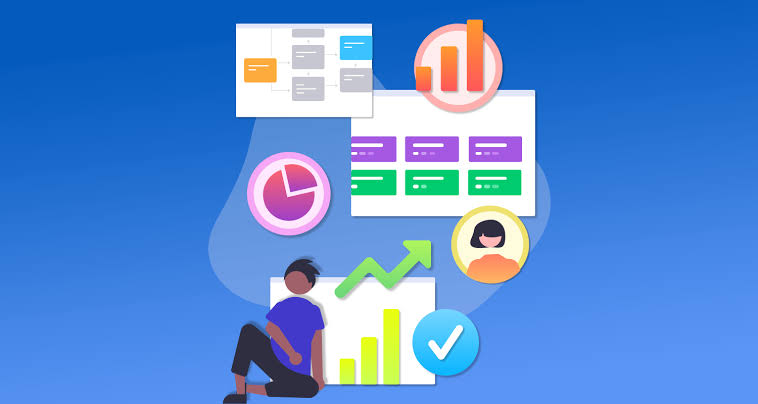Key Takeaways:
- Grasping the quintessence of data governance and how it is a game-changer for consistence and security.
- Recognizing the convergence of data governance with regulatory adherence and hazard management.
- Implementing compelling data governance strategies to protect information and enhance business intelligence.
- Understanding the technological tools that fortify data governance efforts.
Table of Contents:
- Understanding Data Governance
- Intersection of Data Governance, Compliance, and Security
- Implementing Data Governance Strategies
- Impact on Business Outcomes
- Overcoming Data Governance Challenges
- Technological Enablers
- Future of Privacy Regulations
- Collaboration and Communication
- Expert Insights
Understanding Data Governance
In an age where data is much the same as cash, the fortress of its governance is foremost. Data governance guarantees the dependable treatment of an association’s information resources, dealing with its ease of use, trustworthiness, accessibility, and security. It goes past simple arrangements and strategies; it’s tied in with laying out a genuine information mindfulness and appreciation culture all through the venture. By setting data usage and handling standards, organizations protect their operational integrity and empower their workers to extract the true value from data insights. From improving customer satisfaction to ensuring smoother internal operations, the ripple effect of sound data governance is clear and far-reaching. Leaders invest in data governance and prepare businesses for scalable and sustainable growth in an ever-expanding digital economy.
The Intersection of Data Governance, Compliance, and Security
The world is turning out to be progressively enacted with an accentuation on information assurance, prompting severe regulations like Europe’s GDPR or California’s CCPA.In this regulatory ambiance, data governance and compliance become intrinsically linked, two sides of the same coin. Adhering to these regulations requires an intimate understanding of data flows, rigorous data classification standards, and robust access controls—essentials embedded in data governance. When comprehensively implemented, data governance mitigates the risks of compliance violations and erects an imposing barrier against cyber threats. The correct identification of data classification levels and the proactive encryption of sensitive information keep the vulnerabilities at bay and safeguard the organization’s reputation and financial health.
Implementing Data Governance Strategies
Reaping the benefits of data governance isn’t by fluke; it’s the outcome of systematic planning and execution. The initiation point lies in a meticulous data inventory, where data types, sources, and repositories are cataloged. A data governance council often steers this initiative, crafting policies that direct data stewardship, data quality, metadata management, and data models. Continuous refinement and auditing of these processes are necessary to align the strategy with evolving organizational dynamics and market trends. As businesses endeavor in this realm, they must maintain an equilibrium between securing data and keeping it accessible to fuel innovation and empirical decision-making.
The Impact of Effective Data Governance on Business Outcomes
At its zenith, adept data governance can catapult an organization’s capabilities in predicting market changes, customizing customer experiences, and enhancing operational efficiency. The data’s descriptive, diagnostic, predictive, and prescriptive analytics transform into tools that can refine every aspect of the business, from marketing strategies to supply chain logistics. Moreover, case studies show that companies can anticipate and swiftly respond to disruptive events through a dedicated data governance framework, thus securing a competitive advantage. These case studies show that data governance is not merely a compliance exercise but a catalyst for innovation and growth.
Overcoming Data Governance Challenges
Laying out a reasonable data governance system is loaded with battles. Associations frequently wrestle with information storehouses that impede the progression of data and make vulnerable sides in direction. Catalyzing an adjustment of corporate ethos to embrace information-driven models areas of strength for requires, change the board drives, and strong preparation programs. Another obstacle is data quality issues, derailing data trustworthiness and analytics reliability. By emphasizing data’s strategic importance and promoting data literacy, firms can surmount these impediments and transform data governance from an aspirational concept to an operational reality.
Technological Enablers
The digital era gifts us with a trove of technological advancements that act as the linchpin for successful data governance. Tools and platforms adept in data cataloging, lineage tracing, and quality assessment automate and simplify complex governance tasks. Moreover, integrating artificial intelligence and machine learning further refines these tools’ precision, offering proactive insights into anomalies or potential breaches. As storage mediums evolve and the push for decentralized architectures such as blockchain becomes more pronounced, these enablers will continue to shape—and be shaped by—the data governance frameworks they support.
The Future of Privacy Regulations
The horizon of privacy laws is a perpetual gradient, and staying ahead means embracing adaptability in data governance strategies. Businesses must track current legislative trends and forecast regulatory shifts that may impact their operations. Effective data stewardship today necessitates an awareness of tomorrow’s potential compliance landscape, compelling businesses to remain vigilant and responsive to new laws that beckon continued modifications to data governance practices.
Collaboration and Communication
No department is an island when it comes to data. Thus, interdepartmental dialogue and cooperation are indispensable in data governance. An open line of communication across organizational spheres ensures that data’s multifaceted nature is respected and utilized appropriately. The compelling understanding and coordination among teams will maintain data integrity as it traverses various business landscapes, turning many into a united force for good governance.
Expert Insights
The potency of data governance is further reinforced when explored through the lens of industry veterans. These experts provide real-world insights and practical advice drawn from years of navigating the intricacies of data management. Inviting such discussions into the conversation provokes thought and encourages innovation within the industry. Listening to those who have orchestrated successful data governance initiatives can be an enlightening beacon for those planning or refining their strategies.


